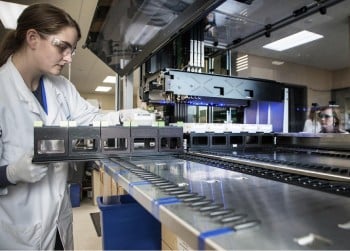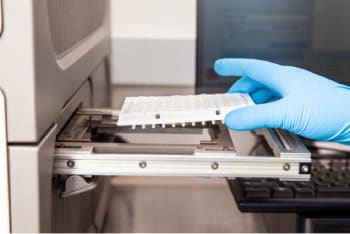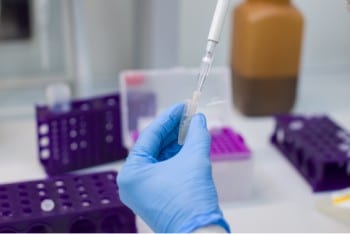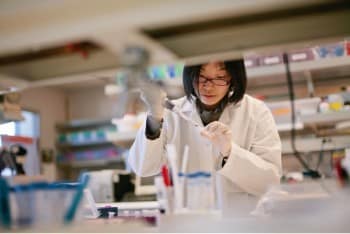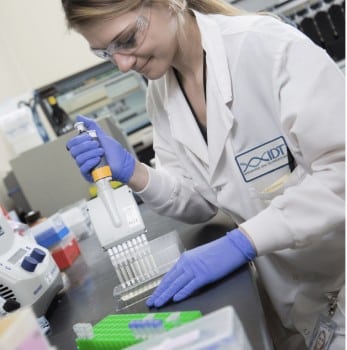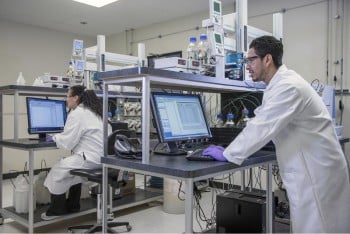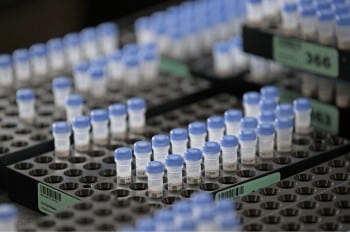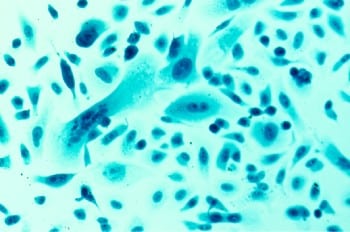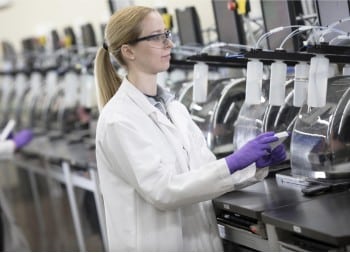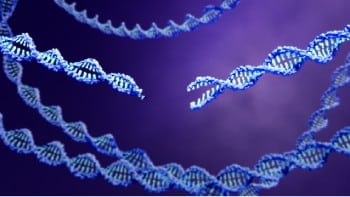Transforming Cancer Research with NGS: Precision vs. Speed

Key summary: Advancements in next generation sequencing technologies are crucial for accelerating cancer identification and biomarker discovery, which is driving unprecedented innovation in cancer research.
- For the majority of research applications, the best research results will come from a holistic approach that is focused on precision and expertise.
- This begins with customized NGS workflows and a focus on collaborative relationships.
- IDT is uniquely positioned with products and solutions to enable researchers to make their next scientific breakthrough.
Should cancer researchers embrace the fast-and-new in next generation sequencing (NGS)?
When it comes to innovation in cancer research, a more holistic approach focused on quality and expertise will continue to be a mainstay. Providers that form productive partnerships—with the cancer researchers they serve, as well as with other NGS innovators—will be uniquely positioned to enable their customers and help them accelerate their next scientific breakthrough.
Transforming cancer research with NGS
NGS has revolutionized genomic research with its ability to offer unprecedented insights into the complexity of genetic information. A focus on precision and expertise will yield superior results and more reliable outcomes in the long run.
The list of benefits of a precision-focused NGS approach is long.
- It provides a higher level of data resolution, allowing researchers to identify genetic variations, structural rearrangements, and mutations at a finer scale. This precision allows the understanding of complex genetic landscapes and gives researchers the ability to unravel the genetic basis of diseases.
- Precision-focused NGS enables the identification of specific genetic mutations and variations in patients, which can facilitate the development of personalized treatment plans tailored to individual genetic profiles.
- Precision-oriented NGS approaches offer superior accuracy, with low error rates that can enable multiple reads of each DNA fragment. This is invaluable for identifying genetic variations associated with diseases, where even a single base pair change can be significant.
- This also provides the ability to detect rare genetic variants. Deep sequencing capabilities allow researchers to uncover these rare variants. This is pivotal for more accurate patient prognoses.
NGS, cancer identification, and biomarker discovery
The advancement of NGS technologies is crucial for accelerating cancer identification and biomarker discovery. The field has already seen the positive impact that genomic approaches have made on precision medicine in cancer research, from CAR T-cell therapies made from individual patients’ immune cells to drugs that target specific genetic abnormalities in their tumors. The future looks bright, with the likelihood of potential breakthroughs contingent on the collaborative efforts of researchers and genomic technology developers to pioneer novel methodologies.
Building customized NGS workflows
Integrated DNA Technologies (IDT) partners with leaders in the cancer research community to advance NGS techniques, often working with many technology providers to customize workflows to help solve labs’ biggest challenges.
This, researchers say, is where it becomes evident that a focus on speed alone is not enough. Creating flexible, automated workflows that optimize library preparation, hybridization capture, and analysis is the key to better, more actionable insights. Optimization will inevitably accelerate the research process, and there is value in customization as providers like IDT work with genomic innovators.
For example, IDT’s experts are advancing the development of NGS adapters—short DNA sequences that are key components of library preparation for NGS. IDT works with customers to facilitate the industrial manufacturing of high-quality oligonucleotides, including ultra-long sequences that allow for the development of hybridization capture technology for targeted NGS. This empowers researchers to zero in on genomic areas of interest, making it faster and easier for them to identify genetic mutations and other alterations involved in cancer development.
This team approach to biotechnology discovery is generating a steady stream of NGS workflow improvements. In 2022, IDT acquired Archer™ NGS Assays, a portfolio of fully customizable solutions for identifying gene mutations and fusions in cancer. This provides researchers an end-to-end platform technology for DNA and RNA NGS that allows them to easily add targets to existing assays, identify low-frequency variants and streamline their analysis. This can be useful for labs that leverage the power of NGS technology and confidently apply plug-and-play solutions to produce the data they need.
For example, labs researching solid tumors can tap into highly flexible and specialized assays with Archer Comprehensive Genomic Profiling (CGP) solutions. With multiple panel content and genomic signature options, researchers can pick their targets of interest and adjust them quickly without the need to change established protocols. VARIANTPlex™, FUSIONPlex™ and custom gene DNA targets can be combined so researchers can identify single nucleotide variants in DNA, novel fusions, homologous recombination deficiency (HRD), and more.
In 2024, IDT enhanced its cancer research portfolio by partnering with software provider Molecular Health. Now the Archer Analysis secondary research assay platform can be paired with Molecular Health's tertiary variant annotation and reporting software, MH Guide CAS, enabling customers to contextualize the data they’ve generated for both known and newly discovered variants.
Driving cancer discoveries
The quest to find more cancer biomarkers, including tumor-driving mutations and alterations, is boosting demand for advanced research approaches. Automated NGS workflows are empowering researchers with the ability to rapidly analyze data derived from whole genomes and transcriptomes. This can often be done with a single small specimen of tumor, tissue, or blood.
Because high-quality specimens are often difficult for cancer researchers to secure, biopsy research samples are preserved using processes that can degrade them, leaving very little left for researchers to probe. Efficient, automated workflows allow researchers to make the most of these precious samples. This is another focus of work at IDT, which is seeking to make advanced research techniques more accessible to cancer researchers in laboratories. NGS tools are rapidly improving, with increasing automation and innovations like artificial intelligence embedded into sequencing tools, yielding faster, more accurate results. The crux comes in finding solutions that optimize both quality and speed. This can be particularly problematic in clinical settings, where accurate diagnosis and treatment decisions rely on precise genetic information.
Precision-focused NGS methods backed by expertise have been rigorously tested and refined, ensuring consistent and reliable results.
Another consideration is the complexity of data analysis. NGS generates massive datasets, posing significant challenges in data management and analysis. Fast and new approaches may not have robust bioinformatics pipelines in place, leading to potential misinterpretation of results. A precision-focused approach, supported by experienced bioinformaticians, ensures thorough and accurate data analysis, extracting meaningful insights from the vast amount of genetic information.
The benefits of a precision-focused NGS approach far outweigh the potential drawbacks. The higher resolution, superior accuracy, ability to identify rare variants, and versatility of precision-oriented NGS methods make them invaluable tools in genomic research and precision medicine.

